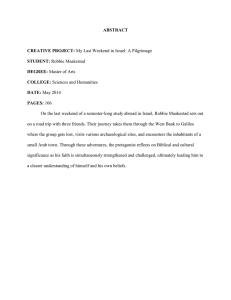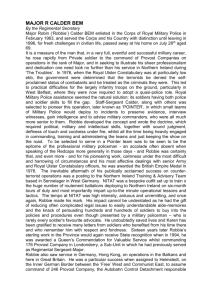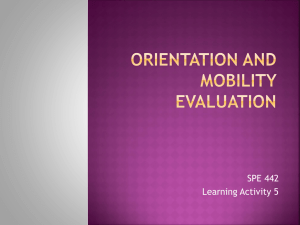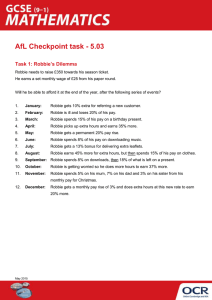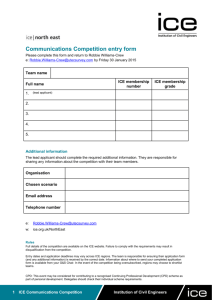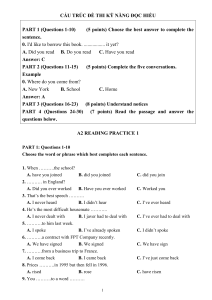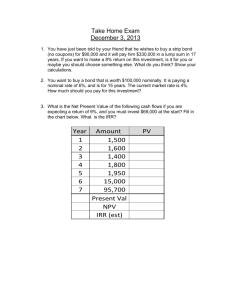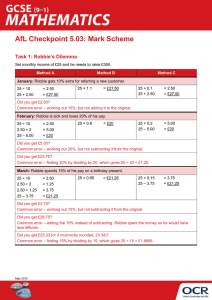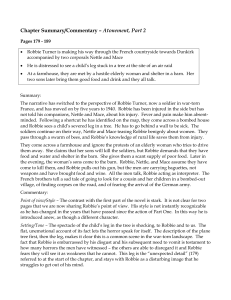6. Two Levels of Reading - Writing.doc
advertisement
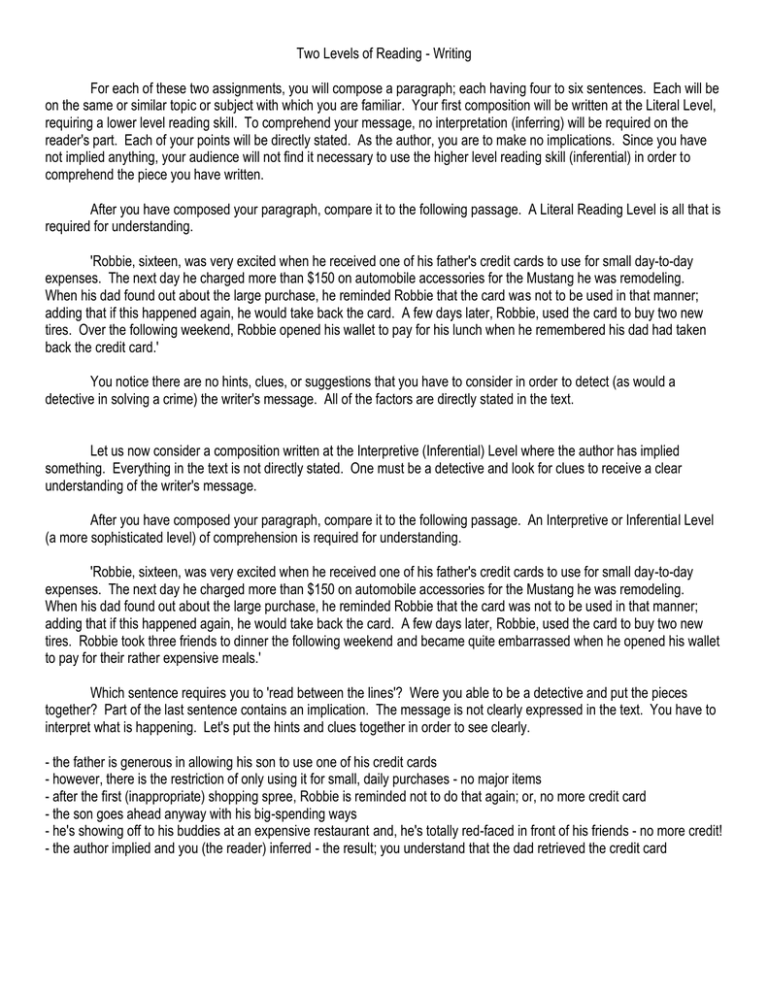
Two Levels of Reading - Writing For each of these two assignments, you will compose a paragraph; each having four to six sentences. Each will be on the same or similar topic or subject with which you are familiar. Your first composition will be written at the Literal Level, requiring a lower level reading skill. To comprehend your message, no interpretation (inferring) will be required on the reader's part. Each of your points will be directly stated. As the author, you are to make no implications. Since you have not implied anything, your audience will not find it necessary to use the higher level reading skill (inferential) in order to comprehend the piece you have written. After you have composed your paragraph, compare it to the following passage. A Literal Reading Level is all that is required for understanding. 'Robbie, sixteen, was very excited when he received one of his father's credit cards to use for small day-to-day expenses. The next day he charged more than $150 on automobile accessories for the Mustang he was remodeling. When his dad found out about the large purchase, he reminded Robbie that the card was not to be used in that manner; adding that if this happened again, he would take back the card. A few days later, Robbie, used the card to buy two new tires. Over the following weekend, Robbie opened his wallet to pay for his lunch when he remembered his dad had taken back the credit card.' You notice there are no hints, clues, or suggestions that you have to consider in order to detect (as would a detective in solving a crime) the writer's message. All of the factors are directly stated in the text. Let us now consider a composition written at the Interpretive (Inferential) Level where the author has implied something. Everything in the text is not directly stated. One must be a detective and look for clues to receive a clear understanding of the writer's message. After you have composed your paragraph, compare it to the following passage. An Interpretive or Inferential Level (a more sophisticated level) of comprehension is required for understanding. 'Robbie, sixteen, was very excited when he received one of his father's credit cards to use for small day-to-day expenses. The next day he charged more than $150 on automobile accessories for the Mustang he was remodeling. When his dad found out about the large purchase, he reminded Robbie that the card was not to be used in that manner; adding that if this happened again, he would take back the card. A few days later, Robbie, used the card to buy two new tires. Robbie took three friends to dinner the following weekend and became quite embarrassed when he opened his wallet to pay for their rather expensive meals.' Which sentence requires you to 'read between the lines'? Were you able to be a detective and put the pieces together? Part of the last sentence contains an implication. The message is not clearly expressed in the text. You have to interpret what is happening. Let's put the hints and clues together in order to see clearly. - the father is generous in allowing his son to use one of his credit cards - however, there is the restriction of only using it for small, daily purchases - no major items - after the first (inappropriate) shopping spree, Robbie is reminded not to do that again; or, no more credit card - the son goes ahead anyway with his big-spending ways - he's showing off to his buddies at an expensive restaurant and, he's totally red-faced in front of his friends - no more credit! - the author implied and you (the reader) inferred - the result; you understand that the dad retrieved the credit card
